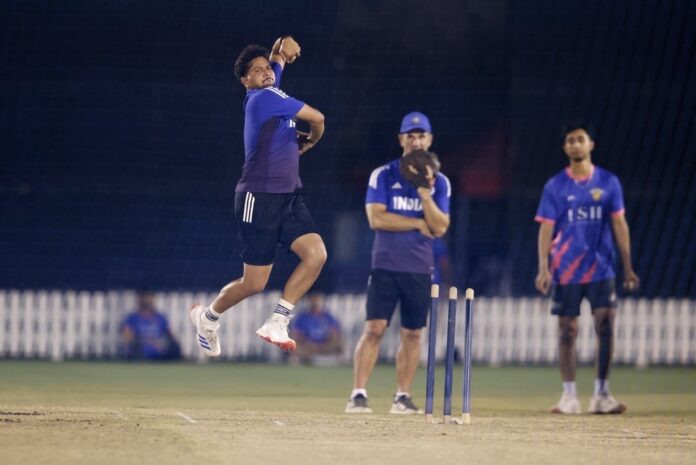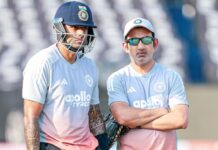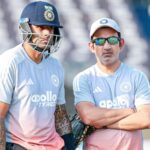
The simple solution would have been to point the finger at everyone for his inability to make the Indian starting XI during the two months he spent warming the bench in England, but Kuldeep Yadav decided to take the more difficult path.
Even if batting-capable spinners are popular right now, Kuldeep has defined priorities and won’t stray from his beliefs.
“If I play in any team, I will play as a (specialist) bowler. My job is to take wickets. If I don’t take wickets, there will be no place for me. It is very important to understand that when you play as a proper bowler, your job is to take wickets for the team,” Kuldeep said on Thursday.
The Kanpur man, who is regarded as India’s most versatile spinner right now, made it apparent that he doesn’t want to put all his eggs in one basket by attempting to become an all-round bowling player.
Before he got his opportunities again, he would have loved to practice his talents, get fitter, and bowl more forcefully. In the first two Asia Cup matches, the left-arm wrist spinner has won Player of the Match twice, including a three-wicket haul against his contented hunting side, Pakistan.
Did Gautam Gambhir, the head coach, communicate clearly? “No, there was clear communication. Sometimes, in 3-4 matches, I felt that I could play, but unfortunately, I couldn’t play.
“Gauti bhai (Gambhir) was very straightforward. Sometimes, I felt that I could play, but as you know, because of the batting combination, I couldn’t,” Kuldeep said ahead of India’s final group league match against Oman.
“But there was nothing about skill or batting,” he added.
He learned new abilities and developed a few new tricks during his two months in the UK.
“When you don’t play, you learn a lot and you become a better player. Because you have a lot of ideas about how to react in a situation. It is very easy to blame someone. And it is very tough to accept things in your stride and strive to improve,” he was being pragmatic.
He said that soul-searching is crucial.
“What am I weak at? What should I work on? How should I become a better player? There are two ways. The player chooses which path he wants to travel. But it is very important that you keep working hard. Don’t leave anything. When you don’t play, you have time to work on yourself. And become a better player when you get a chance. But practice sessions are done to improve any skill.”
Despite having an outstanding T20I record, Kuldeep is also rather critical of his own bowling and believes he is not yet playing to his full ability.
“I don’t think I am bowling that well. But I think I can improve and become better. Sometimes, you make a mistake in reading the batsman in this format. When you are at the top of a team and make small mistakes, you don’t notice it. But you feel that you have made a mistake. I still have to work on that. I think I need to work more in bowling because there are more formats.”
Considering the team’s management’s perspective, is he improving his batting a little more? His response is very unexpected.
“I am not worried about batting. Whenever we get an opportunity to bat during the next session, I generally bat. It is very important to bat in the game. That is the most important thing for any batter who wants to improve his batting. But obviously, I have been working a lot on my batting.”
Kuldeep is a well-known Barcelona supporter and one of the Indian cricket team’s biggest football nerds. He now has his own YouTube channel, where he provides commentary and, when he has the time, analyzes Champions League, Premier League, and La Liga matches.
He thinks that seeing well-known players warm up in elite football matches helps him cope with the disappointment that comes with being left out.
“If you follow other sports, you get to know how it feels when a team is performing really well. You see the bench strength of their (Barcelona) team. They have some unbelievable bench strength and some of them, they are not getting enough game time — like 20 minutes, 15 minutes, but they are such good players.”
“They can start in any game. You see other teams and you see how they play, the big teams especially, and when they play against a small team, how they react, the communication, the final decision making is so quick.”












